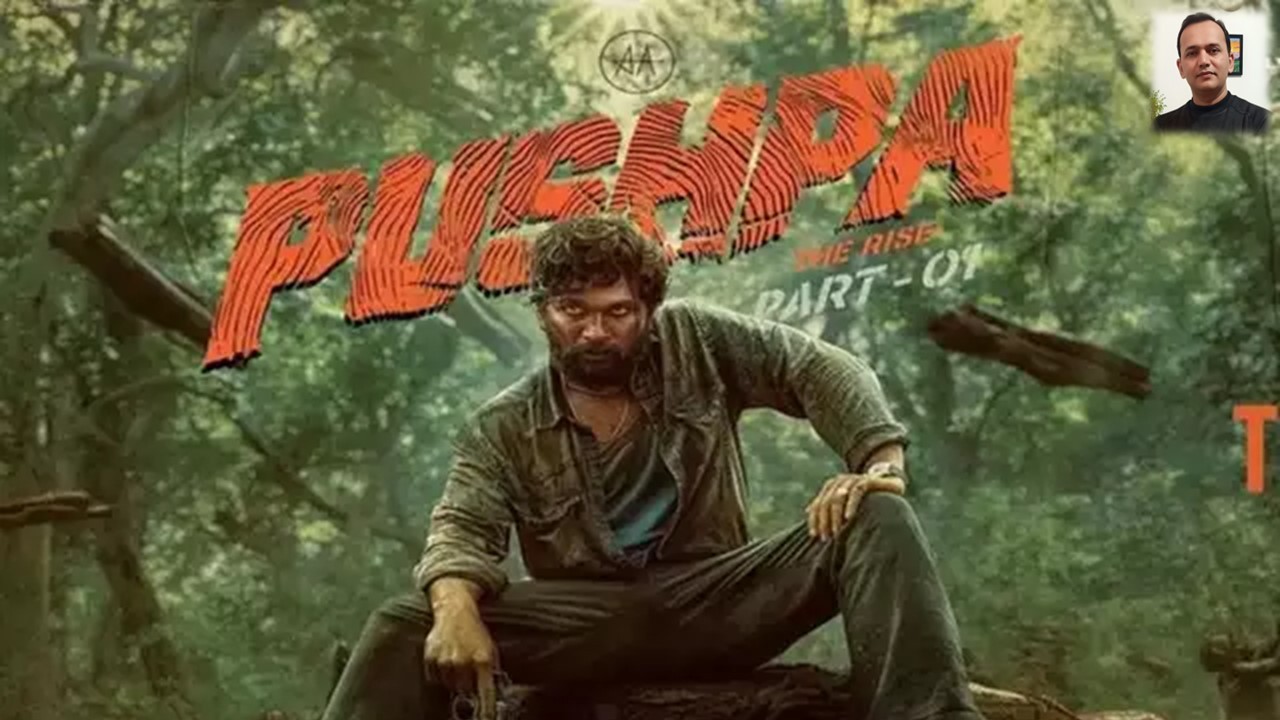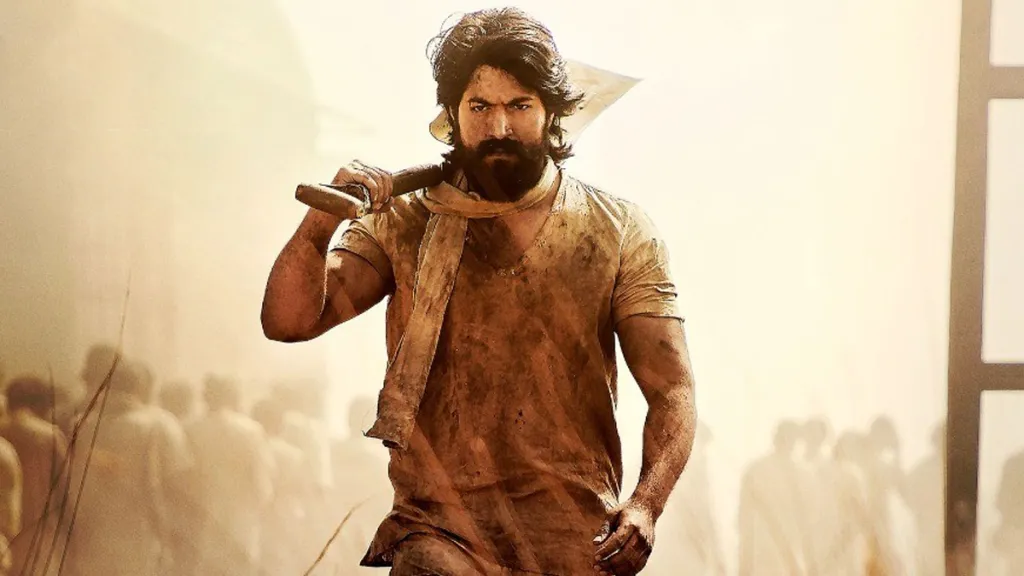Streaming
The Double: Ghostly vengeance upon you!
After the daughter of county magistrate is betrayed by those she trusted the most, she takes on a new identity and returns to the capital to mete out her own brand of justice!
Quite a bit is said about Jiang Li, the daughter of the Minister of the Central Secretariat, and how she suffered at the Temple her father sent her to after a blowout at home, with not a single person coming to visit her, or send any kind of letter, in more than ten years. But I think the banked rage of Xue Fang Fei, our heroine who takes Jiang Li’s place, is also entirely worth exploring. And so, prepare your best drugged tea for the Spoilers about to follow!
We begin more or less, on a stormy night with a hole dug in the ground, a garbled confession that mentions a woman in power who could crush them both like ants apparently and a knockout shot via shovel, all at the hands of her own beloved husband Shen Yurong, that culminates in the death of Xue Fang Fei (Jinyan Wu). Except, she didn’t die. Betrayed by the one person she gave up like everything for, Xue Fang Fei escapes and washes up on the shore, to be found by Jiang Li and her faithful friend and servant Tong’er (Ai Mi).
Jiang Li (also Jinyan Wu), despite being the neglected daughter of the Minister of the Central Secretariat Chancellor Jiang (Su Ke), or perhaps because her stepmother is one jealous horrific hag but we’ll get to that later, is not well treated at all at the Temple. And when that mistreatment finally manages to culminate in her actual death, it provides an opportunity for the newly-resurrected Xue Fang Fei. The new Jiang Li wins the loyalty of her lifelong friend Tong’er, the silence of the Abbess of the Temple, and the attention of a very powerful man, Duke Su, all in the space of like a few days. She even gets the silent approval of the ghost of the real Jiang Li, and willingly takes on the mission of her spirit – to avenge the real Jiang Li, to set right the things in her life that were wrong, that lead to her accidental death far from home, alone with none of her blood family to save her. Since this is a Chinese show, we know that is a mountainous burden to take on.
First, we have to get out of the Temple. And the arrival of Duke Su (Wang Xing Yue) and his men, investigating a salt smuggling scandal along with other sordid things the Temple is accused of, is the perfect vehicle to do it, even if Jiang Li has to get arrested for it. Then we have to get back to the household of her father, the Minister of the Central Secretariat or Chancellor Jiang, and the hell of stepmother Ji Shu Ran and stepsister Jiang Ruo Yao’s bickering, backbiting both hidden and blatant, with only the impotent Grandma as a friend. Oh, and also, to get embroiled in palace drama, royal guard investigations, a pretty forbidden romance with a certain very stoic-seeming commander, and mete out plans, and justice, of her very own.
The show does an excellent job at showcasing strong women in various forms of power, exercising it in very different ways, and more often than not, the pain and suffering they deliberately cause to those around them. That’s not to say that they each don’t have their reasons, justifiable or not, but the power they wield is often only tolerated if not outright ignored by the men around them. The new Jiang Li defies these conventions, with a mind like a steel trap and the sheer fortitude to power through whatever the current test is – a qin performance that leaves her fingers bleeding and her audience weeping; whether or not she allergy-poisoned her stepsister, come on; allegations from the Emperor himself – Jiang Li makes careful, detailed plans, and carries them out with the patience and cunning of a spider, calm and deadly.
The shows villains are mostly women, come to think of it, with Elder Princess Wanning being at the foremost of the pack, she likes torturing her playtoys, and some time ago she decided Shen Yurong was going to be one of them. Which actually kicked off this whole mess, of conspiracies and deaths and cover-ups, all because Xue Fang Fei’s ex husband has no balls whatsoever. Or perhaps he’s the Empires biggest hidden masochist, who knows. Even Shen Yurong’s actual attempts at true villainy towards the end were poorly planned, badly executed, and almost lackluster, despite his purported desperation to win for once.
Whereas, the smiling tyranny of Ji Shu Ran back at the Prime Ministers household, using her children as weapons against Jiang Li, the love and hey guilt of her father to gently nudge him the “right” way towards getting Jiang Li out of the house by means fair or foul, is all to be expected. Her stepmother had been doing very bad things since Jiang Li was a very little girl, and the hidden knowledge of one of those atrocities in particular, is what led to tiny Jiang Li being maligned, punished, and sent away to the Temple. So of course taking care of the wicked stepmother, or rather, allowing her to fall into the self-same trap of her own making from so long ago, is high on the list of stuff in Jiang Li’s life that needs addressing.
The best male performance inevitably come from the lead love interest, Duke Su Xiao Heng, though his two main men, Lu Ji and Wen Ji, come as a close and often comedic second, and the emotions invoked from Jiang Li’s fathers acceptance of her return run the whole gamut of spectrum – especially when her father finally reveals that yes, he knew that the Jiang Li that returned wasn’t the one he originally left, that Xue Fang Fei managed to take vengeance for his beloved daughter and in doing so, finally actually become her, once and for all.
It’s long and complicated and fraught with excitement and danger, featuring an absolutely ruthless female lead who lets nothing not even family ghosts stand in her way, and a perfect story to enjoy the 2024 spooky season to! Cheer on The Double on Netflix now!
Streaming
Review: Pushpa: The Rise (2021)

Director: Sukumar
Cast: Allu Arjun, Rashmika Mandanna, Fahadh Faasil
Genre: Action, Drama
Rating: 4.5/5
Pushpa: The Rise is a raw, adrenaline-fueled ride that showcases the underbelly of the red sandalwood smuggling trade in Andhra Pradesh. Directed by Sukumar, this movie brilliantly blends high-octane action with emotionally driven storytelling, making it a must-watch for fans of Telugu cinema and action dramas.
The narrative follows Pushpa Raj (Allu Arjun), a laborer in the red sandalwood trade, as he climbs the ranks to become a powerful figure. Born into poverty and scorned for his illegitimacy, Pushpa’s journey is marked by grit, ambition, and a fierce sense of self-respect. The film deftly balances the action-packed rise of Pushpa with moments of vulnerability, particularly in his tumultuous romance with Srivalli (Rashmika Mandanna).
The antagonist, Bhanwar Singh Shekhawat (Fahadh Faasil), is introduced towards the film’s end, setting the stage for a gripping sequel. The climactic confrontation between Pushpa and Shekhawat is a masterclass in tension-building, leaving viewers eagerly awaiting Pushpa: The Rule.
Allu Arjun: This is Allu Arjun’s film through and through. His transformation into Pushpa is a revelation, from his rugged look to his unapologetic demeanor. His mannerisms, including the now-iconic shoulder rub and dialogue delivery, make Pushpa an unforgettable character.
Rashmika Mandanna: While her role as Srivalli adds emotional depth to the story, it feels slightly underutilized. However, her chemistry with Allu Arjun is undeniable.
Fahadh Faasil: Despite limited screen time, Fahadh delivers a chilling performance as the cold and calculating Shekhawat. His presence promises an explosive conflict in the sequel.
Sukumar’s direction is stellar, balancing mass appeal with nuanced storytelling. The screenplay maintains a brisk pace, seamlessly weaving action sequences with character development. The film’s raw and grounded tone is a departure from the glossy feel of many mainstream Telugu films, adding authenticity to the story.
Mirosław Kuba Brożek’s cinematography is stunning, capturing the lush forests of Andhra Pradesh and the gritty world of the red sandalwood trade.
Devi Sri Prasad’s music is another highlight. Tracks like “Srivalli” and “Oo Antava” became cultural phenomena, while the background score enhanced the film’s intensity.
Action Sequences: The action choreography is visceral and hard-hitting, perfectly complementing the film’s tone.
The film explores themes of ambition, class struggle, and self-respect. Pushpa’s refusal to bow down to societal norms resonates deeply, making him a relatable anti-hero. The story also critiques the systemic exploitation of laborers, adding a layer of social commentary.
Pushpa: The Rise is an exemplary action-drama that redefines the Telugu film industry’s global appeal. With a magnetic performance by Allu Arjun, stellar direction by Sukumar, and unforgettable music, it stands out as one of the best films of 2021. While it occasionally falters with some underdeveloped subplots, the overall experience is nothing short of spectacular.
4.5/5 Pushpa: The Rise is a cinematic feast that deserves its cult status. Whether you’re a fan of Telugu action films or a newcomer, this film is a must-watch. Its cliffhanger ending ensures that Pushpa: The Rule will be even bigger and better.
Streaming
KGF: Chapter 2

Director: Prashanth Neel
Cast: Yash, Sanjay Dutt, Raveena Tandon, Srinidhi Shetty
Genre: Action, Drama
Rating: 4.5/5
KGF: Chapter 2 is an explosive sequel to the 2018 blockbuster KGF: Chapter 1. Directed by Prashanth Neel, the film elevates the gritty narrative of Rocky (played by Yash), a man who rises from poverty to become a feared and revered leader. The sequel builds on the success of the first chapter with an even grander scale, intense drama, and jaw-dropping action sequences.
The story picks up with Rocky establishing his dominance over the Kolar Gold Fields after eliminating his rival, Garuda. As the “king of KGF,” Rocky faces new challenges, including the vengeful Adheera (Sanjay Dutt), who returns to reclaim what he believes is rightfully his. Meanwhile, political power struggles arise, with Prime Minister Ramika Sen (Raveena Tandon) intent on curbing Rocky’s influence.
The film delves deeper into Rocky’s psyche, exploring his motivations, vulnerabilities, and unrelenting ambition. It balances high-octane action with emotional depth, as Rocky continues his fight for survival and legacy.
Yash’s Star Power: Yash’s portrayal of Rocky is magnetic. His intensity and swagger make the character larger-than-life while retaining a raw, emotional core.
Sanjay Dutt as Adheera: Inspired by Viking warriors, Dutt’s Adheera is a terrifying and formidable antagonist, creating memorable clashes with Rocky.
Visual and Technical Brilliance: The cinematography by Bhuvan Gowda captures the grandeur and darkness of KGF with stunning visuals. The action sequences are choreographed to perfection, blending realism with spectacle.
Ravi Basrur’s Music: The background score enhances the drama, creating an immersive experience.
Dialogues and Screenplay: Rocky’s punchlines, combined with the tightly written narrative, keep the audience engaged.
While the film is a cinematic treat, its pacing occasionally falters with some scenes overstaying their welcome. The sprawling cast and multiple subplots can make the narrative feel dense at times.
KGF: Chapter 2 is a roaring success that delivers on its promise of being bigger, bolder, and better than its predecessor. It combines a compelling story with spectacular action and unforgettable performances, particularly from Yash and Sanjay Dutt. The film solidifies the KGF franchise as a benchmark for Indian action cinema.
Final Rating: 4.5/5 Whether you’re a fan of action-packed epics or compelling character-driven dramas, KGF: Chapter 2 is a must-watch that will leave you exhilarated.
Streaming
KGF chapter 1 – A Gritty Saga of Power, Poverty, and Redemption

Indian cinema has a long-standing tradition of delivering grand narratives that are equal parts spectacle and soul. KGF: Chapter 1 (Kolar Gold Fields), directed by Prashanth Neel, is a prime example. This gripping action-drama chronicles the meteoric rise of Rocky, a man driven by a promise and fueled by his hunger for power. Released to critical acclaim, KGF has redefined the boundaries of storytelling in Indian cinema.
Set in the 1970s, KGF follows the journey of Rocky (Yash), a young boy born into poverty in the slums of Mumbai. From a tender age, Rocky is shaped by two forces: his mother’s dying wish for him to rise above his circumstances and his unyielding ambition to command respect and fear.
His journey takes him to the gold mines of Kolar, a lawless land ruled by brutal oppressors. The film tracks Rocky’s transformation from a street-smart hustler to a feared force who challenges an empire built on blood and exploitation.
The strength of KGF lies in its compelling protagonist. Yash delivers a magnetic performance as Rocky, embodying both his raw charisma and ruthless determination. The film paints a vivid picture of a man who thrives in adversity, using every setback as fuel for his ascent. Rocky is not a mere vigilante but a strategist, whose ability to inspire loyalty and strike fear sets him apart.
The movie captures his internal conflict beautifully — while he climbs the ladder of power, he never loses sight of his mother’s dream for him. This duality makes Rocky more than just a hero; he is a symbol of rebellion, resilience, and redemption.
At its core, KGF is a commentary on systemic oppression and the human spirit’s ability to rise against all odds. The stark contrast between the opulence of the gold fields’ rulers and the crushing poverty of its workers sets the stage for Rocky’s rebellion. His fight isn’t just personal; it’s for the voiceless, the oppressed, and the forgotten.
The film doesn’t shy away from showcasing the brutal realities of poverty and exploitation, making Rocky’s triumph all the more satisfying.
Prashanth Neel’s direction is nothing short of masterful. Every frame of KGF is meticulously crafted, from the sweeping vistas of the Kolar gold fields to the grimy underbelly of Mumbai’s streets. The gritty visuals are complemented by an electrifying background score that enhances the film’s larger-than-life moments.
The nonlinear narrative, interspersed with a journalist’s account of Rocky’s rise, keeps viewers engaged and adds layers to the storytelling.
The action sequences in KGF are a visual feast. Yash’s larger-than-life persona is amplified by choreographed fights that are brutal, balletic, and breathtaking. Each confrontation feels earned, showcasing Rocky’s ingenuity and brute strength. The climax, set against the backdrop of the Kolar gold mines, is particularly unforgettable.
KGF: Chapter 1 is a cinematic triumph that combines raw emotion, relentless action, and a protagonist you can’t help but root for. Yash’s performance and Prashanth Neel’s vision elevate the film to a league of its own, making it a benchmark in Indian cinema.
KGF is more than a film; it’s an experience. It’s a story of ambition, sacrifice, and the indomitable human spirit. Rocky’s climb from the depths of poverty to the pinnacle of power is not just inspiring — it’s electrifying.
Whether you’re a fan of action-packed dramas or epic tales of rebellion, KGF delivers on every front. With its gripping narrative and unforgettable performances, it’s a must-watch for anyone who loves a good underdog story.
Rating: 4.8/5 As Rocky says in the film, “Powerful people make places powerful.” By the end of KGF, you’ll realize that Rocky is one of them — and so is this film


